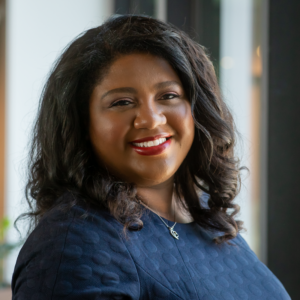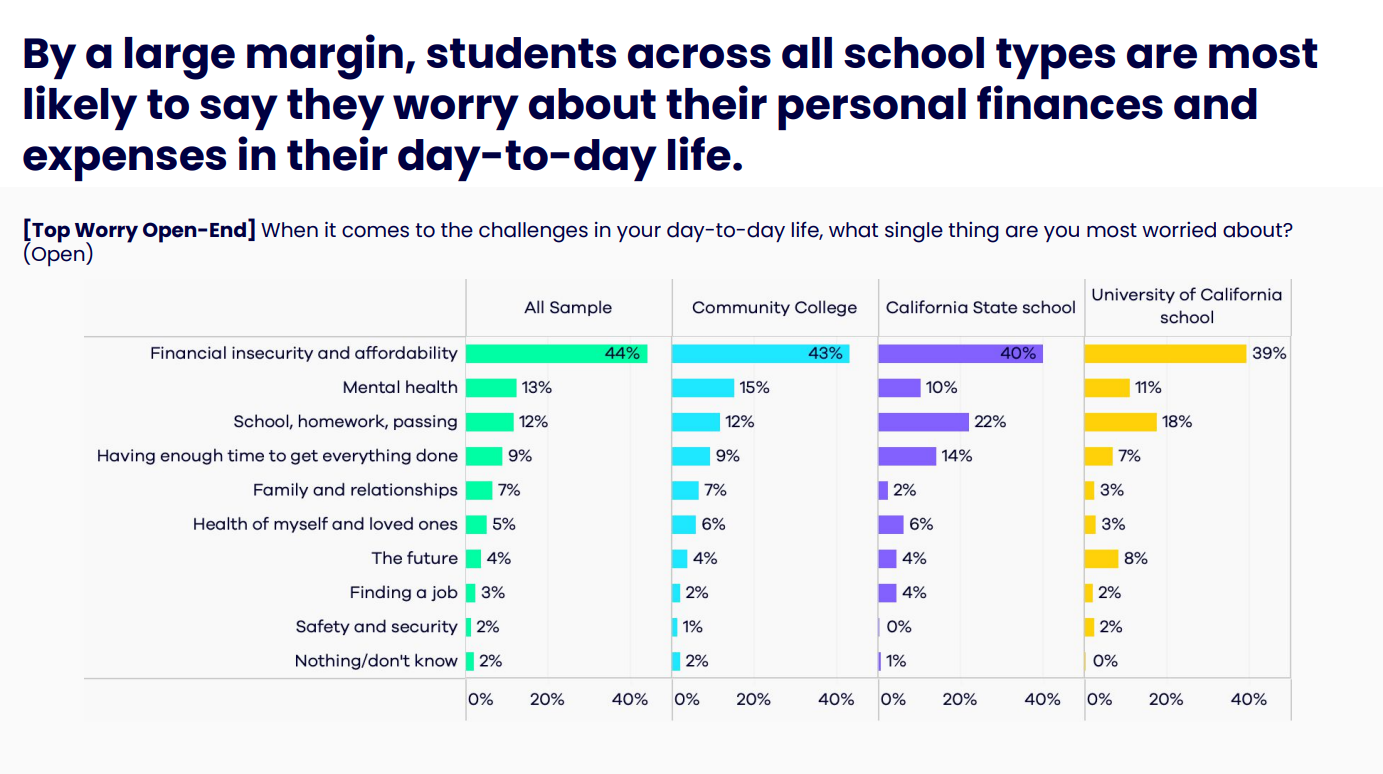Spotlights
T.E.A. with College Futures featuring Darcel Sanders
Welcome to T.E.A. with College Futures, a monthly feature dedicated to Talking Equity in Action with grantees, partners, and College Futures Foundation staff. Each month, we’ll highlight efforts addressing inequities in and around higher education and related to socio-economic mobility, and seek learnings and inspirations directly from changemakers.
Community Engagement for College Success Network
 Earlier this month, the Community Engagement for College Success Network (CECSN), represented by 13 local and statewide organizations and funded by College Futures Foundation, released findings from their statewide research poll conducted to better understand the key priorities, barriers, experiences, and values shaping the attitudes of college students in California, with a particular focus on students of color.
Earlier this month, the Community Engagement for College Success Network (CECSN), represented by 13 local and statewide organizations and funded by College Futures Foundation, released findings from their statewide research poll conducted to better understand the key priorities, barriers, experiences, and values shaping the attitudes of college students in California, with a particular focus on students of color.
GO Public Schools served on CECSN’s statewide poll working group. Darcel Sanders, GO’s chief executive officer, shares the impetus behind the statewide poll and offers her thoughts on the findings.
Q: What prompted CECSN to conduct a statewide poll in the first place?
A: The poll started as the brainchild of a CECSN member organization and got legs as we explored the idea together as a network. The organizations that make up CECSN are so unique and yet, at our core, we’re all advocates and people who care a lot about the experiences of students and communities informing the investments and policy changes we need to see in higher education.
As a network, we were clear that we wanted to ground our advocacy in the realities facing today’s students – the poll was one way to achieve that. And we wanted to give students the opportunity to tell their own stories, which is why we lifted up qualitative data. I thought this piece was particularly important because the experiences of students today are so incredibly different from the experiences of students just five years ago. The pandemic, the economy, social unrest, the overturning of Roe v Wade – all of these events would be individually defining for a cohort of students, but together they’re a perfect storm. We need to understand and address what this all means for students today and those that will follow them.
Q: Can you share more about the poll’s findings?
A: Almost 1,000 students were surveyed across California’s three public higher education segments and it’s clear that there are heightened concerns about personal finances and paying for college, a greater need for mental health, food, and housing support, and a general belief that expanding the Cal Grant program would reduce stress and help students with California’s cost of living.
We also learned that one third of students reported taking time away from school during the pandemic. More than one in ten students, particularly those from community colleges, paused school during the pandemic and have not returned.
Q: Were you surprised by what you learned?
A: The poll’s findings track with so much of what we heard during the pandemic – and continue to hear – from parents, caregivers, and students in our network at GO. For families in the communities we serve, concerns about finances and challenges with mental health and wellness are certainly top of mind and we continue to advocate alongside them for more comprehensive services and supports.
It was alarming to see just how many students from the poll’s sample stepped away during the pandemic and by the constant stress our students experience for myriad reasons. Even as we emerge from the pandemic, we still have so much more to do to better understand its long-term impacts on our students.

